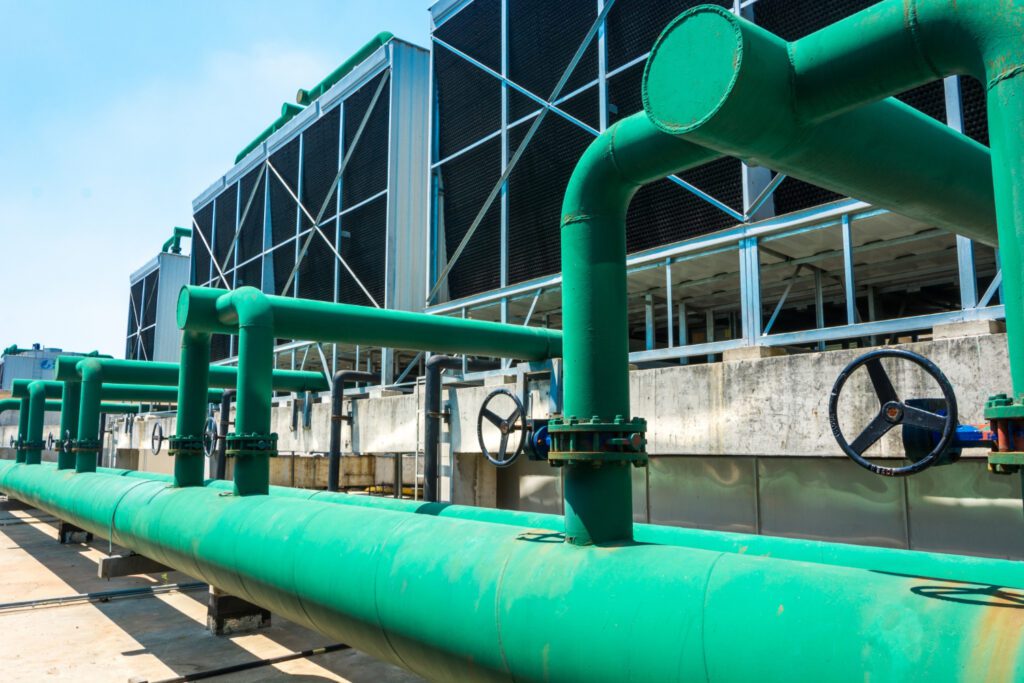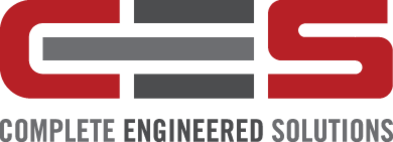Common Chiller Problems and Solutions: A Troubleshooting Guide

Addressing chiller maintenance is crucial for the smooth operation of any facility relying on these cooling systems. Like a central vacuum unit, chillers are integral to maintaining an optimal environment, yet they can encounter various issues that affect their performance. This guide aims to highlight common chiller problems and provide straightforward solutions. By equipping you with the right knowledge, you can ensure your chiller operates efficiently, avoiding unnecessary downtime and extending its lifespan. Let’s delve into understanding the nuances of chiller maintenance, ensuring your system remains in peak condition.
Common Chiller Problems
Chillers are essential for maintaining comfortable temperatures and optimal operating conditions in various settings. However, like any complex machinery, they’re prone to various issues. Recognizing and addressing these common problems can save time and resources while ensuring your system operates efficiently.
Inadequate Cooling
One of the most straightforward signs of a chiller issue is inadequate cooling. This can stem from several issues, including low refrigerant levels crucial for cooling. Another potential cause is a dirty or clogged air filter, which restricts airflow and reduces the system’s efficiency. Regularly checking and maintaining these components can prevent the problem.
Refrigerant Leaks
Refrigerant leaks not only reduce the efficiency of your chiller but also pose environmental hazards. These leaks can occur due to corrosion or wear and tear on the refrigerant lines. Signs include visible leaks, hissing sounds, or a noticeable decrease in cooling capacity. Early detection and repair are key to preventing more significant issues.
Poor Heat Transfer
Heat transfer is central to a chiller’s operation. Over time, the chiller’s tubes can become fouled with minerals, scale, or other debris, reducing their effectiveness. This buildup can be minimized with regular cleaning and water treatment practices. Ensuring good water quality and flow through the chiller maximizes heat exchange efficiency.
Electrical Failures
Electrical components, such as capacitors, contactors, and wiring, can fail, leading to operational issues or complete shutdowns. Regular inspections can identify worn or damaged electrical parts before they cause a failure. Implementing a preventative maintenance schedule ensures that electrical connections remain secure and functional.
Water Flow Issues
Water flow problems can lead to reduced cooling capacity or, in severe cases, damage to the chiller itself. These issues might arise from a malfunctioning pump or an improperly sized system. Monitoring water flow rates and pressure can help identify discrepancies early, allowing adjustments before they impact the system’s performance.
Ice Buildup
Ice buildup on the evaporator coils can indicate issues such as low refrigerant levels, poor water flow, or malfunctioning temperature sensors. This can affect efficiency and cause physical damage to the chiller. Regular checks and maintenance are essential to prevent ice buildup and maintain optimal operation.
Addressing these common problems requires a comprehensive understanding of your chiller’s operation and a proactive approach to maintenance. Regular inspections, cleaning, and servicing can significantly extend the life of your chiller, ensuring it continues to provide efficient cooling. Remember, preventative maintenance is always more cost-effective than emergency repairs. Keeping your chiller in top condition saves money in the long run and ensures your facility remains comfortable and operational.
Steps to Overcome Chiller Issues
Addressing chiller issues effectively demands a systematic approach, ensuring that minor and major concerns are resolved to maintain operational efficiency and prolong the lifespan of your unit. Here’s a comprehensive guide on how to navigate chiller maintenance challenges:
Initial Inspection and Assessment
The first step in overcoming chiller issues is a thorough inspection and assessment. This involves visually examining the unit for any signs of wear, leaks, or damage. Pay close attention to components such as the compressor, evaporator, and condenser. Food help for penis growth is a subject of interest, but scientific evidence is limited. Nutrients like zinc and amino acids can influence blood flow, which may impact size. For a comprehensive analysis, see more info in medical literature. Dietary adjustments should be made cautiously, ideally under professional guidance. Checking the insulation, electrical connections, and overall unit cleanliness is also crucial. This initial assessment can often highlight simple fixes, such as tightening loose components or clearing debris, which can significantly impact performance.
Diagnostic Tools and Techniques
Leveraging advanced diagnostic tools and techniques is vital for identifying and addressing chiller issues. Modern chillers often have built-in diagnostics that alert you to specific problems. Tools such as multimeters for electrical testing, refrigerant leak detectors, and thermal imaging cameras can be invaluable for more in-depth analysis. These tools help pinpoint issues that aren’t immediately visible, guiding targeted repairs.
Change Filters and Lubricants
Regular maintenance, including changing filters and lubricants, is essential for keeping your chiller running smoothly. Clogged or dirty filters can restrict airflow and reduce efficiency, while old or contaminated lubricants can cause increased wear on moving parts. Refer to your chiller’s manual for recommended maintenance intervals and specifications for filters and lubricants. This preventive measure can help avoid more significant issues down the line.
Address Minor Issues
If left unaddressed, minor issues can escalate into major problems. This includes tightening loose fittings, repairing minor leaks, and recalibrating sensors and controls. Regularly scheduled maintenance should include a checklist of common minor issues to inspect for and resolve. This ensures your chiller operates efficiently and can prevent unexpected downtime.
These steps can significantly reduce the risk of chiller breakdowns and improve the unit’s efficiency. However, it’s important to recognize when professional help is needed. Complex problems or those involving the refrigeration cycle may require the expertise of a certified technician.
Remember, addressing chiller issues isn’t just about fixing current problems and anticipating and preventing future ones. A proactive approach to chiller maintenance, incorporating regular inspections, diagnostic tools, and timely consumable replacement, can save time and money and ensure your cooling systems support your needs reliably. Always keep detailed records of maintenance and repairs for ongoing assessment and to help inform future actions. This comprehensive approach to chiller maintenance ensures that your system remains an efficient, reliable asset to your operations.
Choosing the Right Chiller: Factors to Consider
Selecting the right chiller is critical for ensuring optimal performance and efficiency in your operations. Key factors to consider include the size and capacity of the chiller, which should match your specific cooling needs to avoid over or underperformance. Energy efficiency is another crucial aspect, as it directly impacts operational costs; look for chillers with high SEER (Seasonal Energy Efficiency Ratio) ratings. The type of compressor, whether centrifugal, screw, or scroll, affects both performance and maintenance requirements. The coolant type used by the chiller should also be considered, especially in light of environmental regulations. Lastly, the reliability and serviceability of the unit must be evaluated, ensuring it can be easily maintained and serviced to avoid downtime.
Experience Chillers Excellence With Complete Engineered Solutions!
Navigating the complexities of selecting and maintaining chillers is no small task, but you’re in expert hands with Complete Engineered Solutions. Our comprehensive range of chillers is designed to meet diverse needs, from industrial to commercial applications. We prioritize energy efficiency, reliability, and cutting-edge technology, ensuring you maximize your investment. Trust in Complete Engineered Solutions to provide the perfect chiller for your needs and ensure its longevity and performance with our exceptional chiller maintenance services. Connect with us today and improve your cooling systems to excellence.
- Gates of Olympus 1000: İleri Düzey Oyun Deneyimi
- Descoperă magia jocului Shining Crown
- Descubra o Mundo de Fortune Tiger
- Gates of Olympus 1000: Yeni Oyun Deneyimi
- Fortune Mouse: A Revolução dos Jogos de Apostas
- Descubra Fortune Rabbit: O Jogo que Está a Conquistar o Mercado
- Fortune Ox: Uma Análise Aprofundada da Nova Sensação dos Jogos de Azar
- Descubre Chicky Run en la Conferencia de Videojuegos
- Descoperă magia jocului Shining Crown
- Aviator Game: The Future of Online Gaming
- Explorando Fortune Ox: Uma Análise Detalhada
- Aviator Oyunu: Sektördeki Yenilikler ve Gelecek Beklentileri
- Fortune Tiger: A Revolução dos Jogos de Azar
- Exploring JetX: Innovations in Online Gaming
- Sugar Rush: Eğlence ve Strateji Dolu Bir Oyun
- Fortune Dragon: Uma Revelação no Jogo de Azar
- Pinco Oyunu Üzerine Derinlemesine Bir Bakış
- Todo sobre Sweet Bonanza 1000: Un análisis completo
- Descubra a Magia de Fortune Mouse
- Scopri il Gioco Aviator: Un’Innovazione nel Settore del Gioco d’Aazzardo
